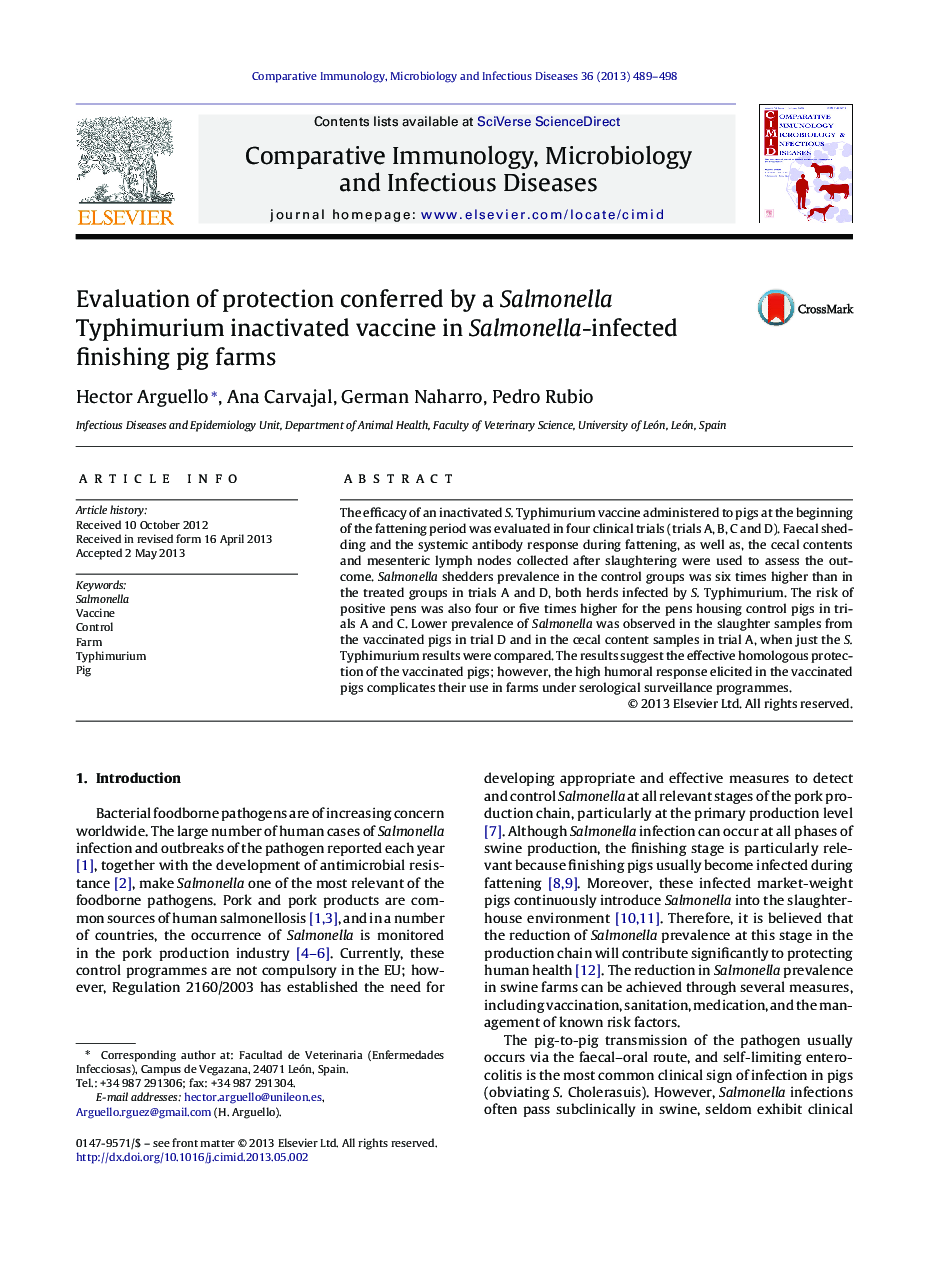| Article ID | Journal | Published Year | Pages | File Type |
|---|---|---|---|---|
| 10971379 | Comparative Immunology, Microbiology and Infectious Diseases | 2013 | 10 Pages |
Abstract
The efficacy of an inactivated S. Typhimurium vaccine administered to pigs at the beginning of the fattening period was evaluated in four clinical trials (trials A, B, C and D). Faecal shedding and the systemic antibody response during fattening, as well as, the cecal contents and mesenteric lymph nodes collected after slaughtering were used to assess the outcome. Salmonella shedders prevalence in the control groups was six times higher than in the treated groups in trials A and D, both herds infected by S. Typhimurium. The risk of positive pens was also four or five times higher for the pens housing control pigs in trials A and C. Lower prevalence of Salmonella was observed in the slaughter samples from the vaccinated pigs in trial D and in the cecal content samples in trial A, when just the S. Typhimurium results were compared. The results suggest the effective homologous protection of the vaccinated pigs; however, the high humoral response elicited in the vaccinated pigs complicates their use in farms under serological surveillance programmes.
Related Topics
Life Sciences
Agricultural and Biological Sciences
Animal Science and Zoology
Authors
Hector Arguello, Ana Carvajal, German Naharro, Pedro Rubio,
